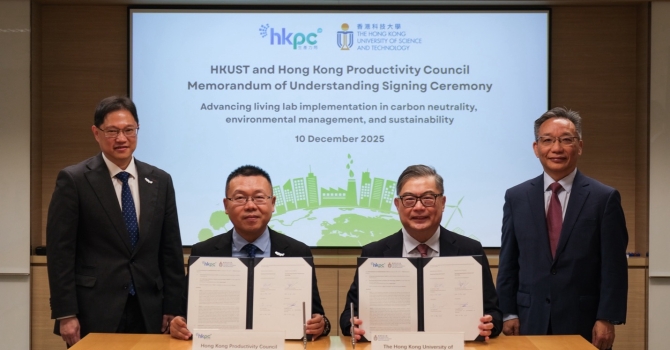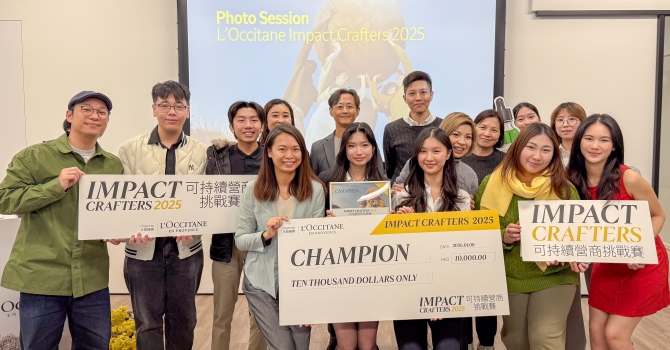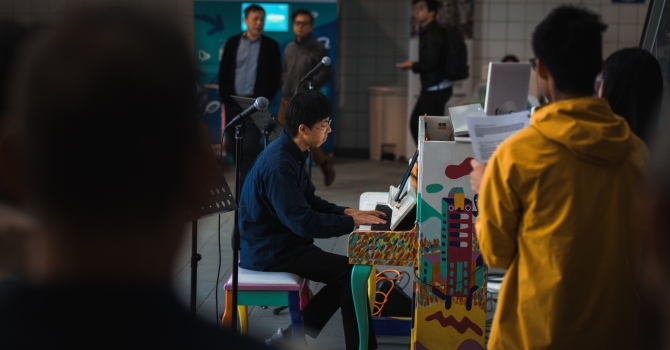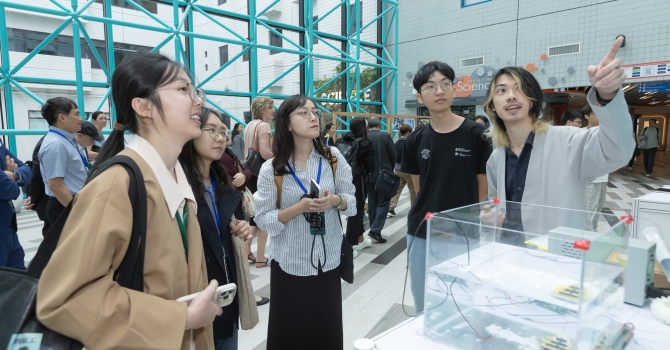HKUST and Civic Exchange Educate Young Ambassadors on Climate-Adaptive Sustainability
On 30th July, 2024, the Sustainable and Smart Campus as a Living Lab (SSC) hosted a sustainability tour for 35 secondary school students, as one of the modules of Civic Exchange’s Young Environment Ambassador (YEA) programme. The tour provided hands-on education on climate-adaptive practices to address Hong Kong’s environmental challenges, including water conservation, green transportation, renewable energy, sustainable food, and waste management.
Civic Exchange, a Hong Kong-based non-profit think tank established in 2000, advances environmental sustainability and climate resilience through research, policy advocacy, and community engagement. Its Young Environment Ambassador (YEA) programme empowers youth to become leaders in sustainable development, fostering actionable solutions for Hong Kong’s climate challenges.
The tour began with an introduction at the Living Lab Hub, outlining HKUST’s commitment to sustainability. Students then explored five key Living Lab project through interactive presentations and demonstrations:
-
Urban Spring Water Fountain System: Helen Chan, Head of Partnerships from Urban Spring Co. Ltd demonstrated a smart water fountain that monitors consumption and streamlining the management of drinking water facilities for enhanced efficiency. Students were fascinated by how the fountain could record the number of plastic water bottles they saved.
-
Aquaponics at UniBistro and Bar: Professor Zhongming Lu introduced an aquaponics system integrating aquaculture and hydroponics, showcasing sustainable food production to support local self-sufficiency. Some students shared how they had a similar system in their school and were inspired by the advanced version at HKUST!
-
Green Parking: Prof. Gary Chan’s team demonstrated an innovative project that leverages edge AI cameras to enhance car parking efficiency for carpoolers and monitor electric vehicle (EV) parking availability. Their system also features a reservation mechanism for fast-charging stations, streamlining the parking and charging experience for EV drivers. This stop gave students a peek into the future of green transportation!
-
Passive Radiative Cooling for Solar Panels: i2cool peers explained a passive radiative cooling coating applied to solar panels on the LSK rooftop, improving energy efficiency. The students were really intrigued about the science behind it.
-
JCSCCP Lunchbox Lending Programme: A hands-on demonstration highlighted this initiative, which has eliminated over 9,000 disposable items, reducing landfill waste through reusable lunchboxes. It is an initiative supported by The Jockey Club Sustainable Campus Consumer Programme promoting responsible choices for a sustainable environment.
Through these stops, students gained practical knowledge to promote sustainable practices. The Urban Spring system encouraged water conservation, aquaponics inspired local food production, and the Lunchbox Lending Programme fostered waste reduction, with one student noting, “It’s amazing to see how little efforts can magnify and create bigger changes.” These lessons empowered “young changemakers” to adopt behaviors addressing Hong Kong’s climate vulnerabilities, such as typhoons and resource constraints.
This collaboration aligns with SDG 6 (Clean Water and Sanitation), SDG 12 (Responsible Consumption and Production), and SDG 13 (Climate Action). By engaging secondary school students in environmental education, HKUST and its NGO partners are cultivating a generation equipped to address climate adaptation challenges.



